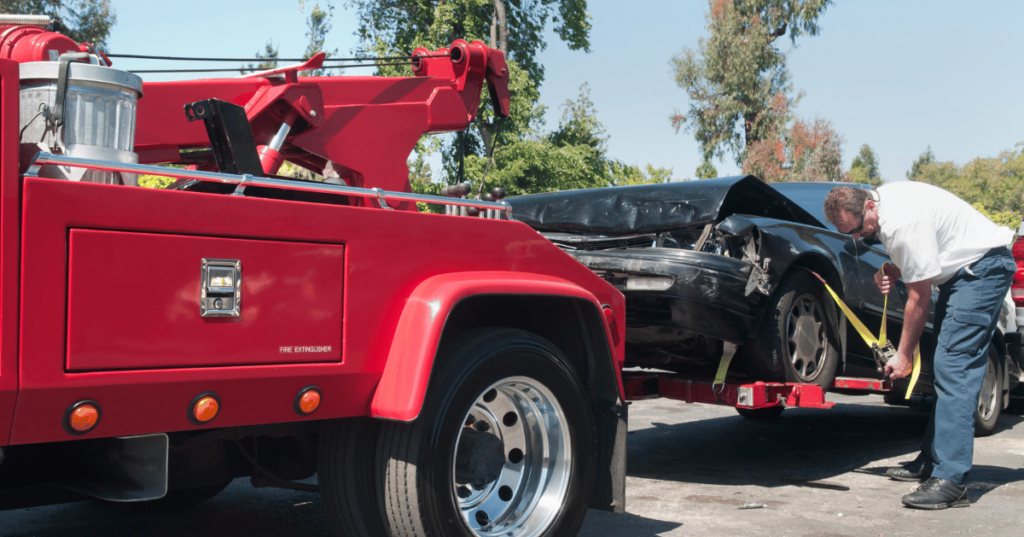Starting a non-CDL car hauling business in 2024 is all about moving cars without the need for a commercial driver’s license. It’s a straightforward way to help people who buy cars online and need them delivered. Your job is to transport vehicles from one owner to another, whether it’s from a seller to a buyer or just someone moving their car.
The best part? You don’t need a special license like a CDL, which makes getting started a lot easier. With more people shopping for cars online, there’s growing demand for delivery services, and car hauling is a part of that.
While it’s simpler than some businesses, there are still important steps you need to take to get set up. Don’t worry—we’ll guide you through each step so you’ll know exactly what to do to start your car hauling business. Let’s dive in!
Related Post: Which is Better for Ecommerce in 2024: Shopify or WordPress?
What Is a Non-CDL Car Hauling Business?
A non-CDL car hauling business involves transporting cars from one location to another, such as between dealerships, auction houses, or from online sellers to buyers. This service is essential for individuals who need to move vehicles without the hassle of driving long distances or for businesses that require efficient vehicle logistics.
How to Start a Non-CDL Car Hauling Business?
Starting a non-CDL car hauling business requires a structured approach and careful planning. Here’s how you can get started, based on the latest insights and strategies for 2024:
1.Understand the Non-CDL Requirements
A non-CDL car hauling business allows you to transport vehicles without needing a commercial driver’s license (CDL), as long as the vehicle and trailer you use do not exceed 26,000 pounds combined. This makes it easier to enter the market, as you won’t have to meet stricter CDL requirements.
2.Choose the Right Equipment
Invest in a reliable truck with sufficient towing capacity for your trailer. The right trailer is essential; consider options like open or enclosed trailers based on your target market. Single-car trailers may be ideal for individual customers, while multi-car trailers could serve dealerships. Focus on fuel efficiency, maintenance costs, and durability when choosing your vehicle and trailer
3.Set Up Business Insurance
Insurance is crucial in protecting your business from liabilities. You’ll need commercial auto insurance, which can cover potential damages to your truck and the vehicles you’re transporting. Additionally, cargo insurance ensures protection for your clients’ cars. Research and consult with providers that specialize in transportation insurance.
4.Obtain Necessary Permits and Licenses
Even though a CDL is not required, you will still need to ensure compliance with local regulations. This includes registering your business, acquiring a USDOT number if you plan to operate interstate, and securing any local permits for hauling. This step varies depending on your location, so check local and federal guidelines.
5.Create a Business Plan
Outline your goals, target market, and strategy in a comprehensive business plan. This plan should cover your financial projections, including startup costs, expected revenue, and operating expenses. Identify your niche, whether it’s serving car dealerships, auction houses, or individuals needing vehicle transport.
6.Set Competitive Pricing
Pricing for car hauling services can range from $300 to $700 per car, with higher rates for long-distance hauls. Calculate your costs, including fuel, maintenance, and insurance, to set profitable yet competitive rates. Offer various pricing options for different services, such as local vs. interstate hauling.
7.Develop a Marketing Strategy
To build your client base, establish an online presence with a professional website and active social media profiles. Network with car dealerships, repair shops, and rental agencies to secure long-term contracts. Consider using platforms like Facebook and LinkedIn to reach private customers.
Starting this business requires strategic planning and the right tools, but by focusing on providing excellent service and efficient logistics, you can build a successful car hauling operation without the need for a CDL.
Tips for Success:
- Efficiency: Optimize your routes and scheduling to maximize efficiency and minimize costs.
- Safety: Prioritize safety by following proper towing techniques and maintaining your vehicle.
- Professionalism: Maintain a professional appearance and conduct yourself in a courteous manner.
- Adaptability: Be prepared to adapt to changing market conditions and customer needs.1
By following these steps and tips, you can successfully start and grow your own non-CDL car hauling business. With the increasing demand for this service, there is a significant opportunity to build a profitable and rewarding venture.
Final Words
Starting a Non-CDL Car Hauling Business in 2024 is a big move. It’s all about good planning, great service, and thinking about what your customers need. You’re entering a market that’s growing and has lots of potential. With the advice you’ve got, you’re ready to build a business that people trust and that earns you a good income.
Keeping up with changes is important. The transport world can change with new laws and trends. By staying informed, you can keep your business strong. Also, always make safety a top priority. You want to make sure every trip is safe for you and the cars you’re moving.
Building strong relationships with people like dealerships and auction houses can lead to more work. And always listen to your customers. Their feedback can help you improve.
When your business starts doing well, think about how to grow. Maybe you’ll offer more services, cover more areas, or bring in more drivers. Remember, you’re not just moving cars; you’re providing a service people rely on. With dedication and a focus on quality, you’re on the right path. Here’s to making it happen in 2024 and beyond!
